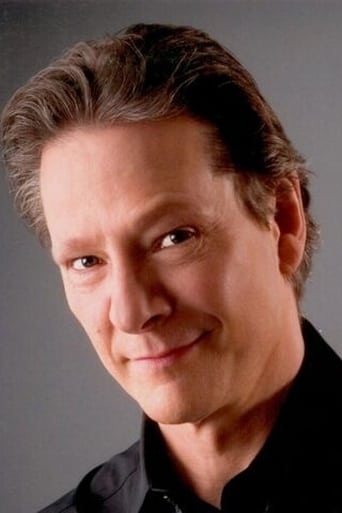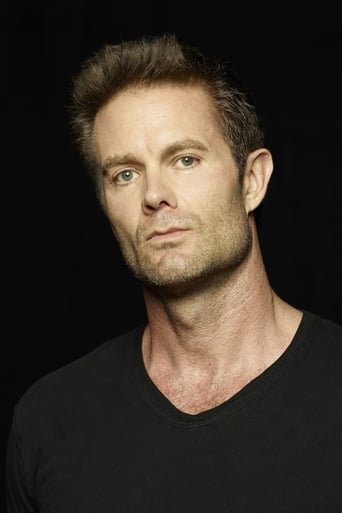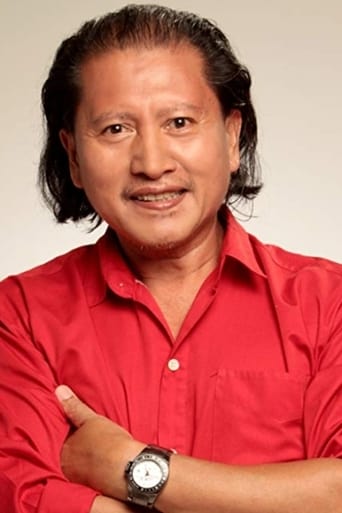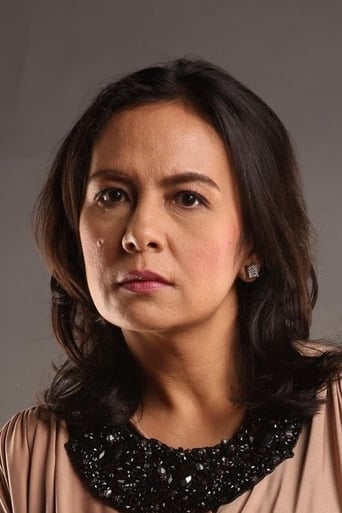Karry
Best movie of this year hands down!
Cubussoli
Very very predictable, including the post credit scene !!!
Bea Swanson
This film is so real. It treats its characters with so much care and sensitivity.
Jonah Abbott
There's no way I can possibly love it entirely but I just think its ridiculously bad, but enjoyable at the same time.
steele-linden
October 26, 2011 director John Sayles came to Trinity's Cinestudio for a showing of his recent movie Amigo, a story of American military occupation in the Philippines following the Spanish-American War. It's Sayles' first digital "film," a mode he said we may as well get used to, simply because it's so much cheaper than film and so will take over not just independent cinema but Hollywood as well. What he got on the screen was very nice to watch. I'd not have known it was digital, great color and some superb photography. That may partly be due to Cinestudio's wonderful facility and care with whatever it shows.Sayles sounds like a Rhodes scholar, obviously very intelligent, but what really struck me is how much he has to say. He's engaged, he cares, he's interested, curious and thoughtful. He clearly did a lot of research on his subject and wanted to share his views.Though I've liked some of Sayles' movies, Return of the Secaucus Seven especially, I found Amigo, unfortunately, disappointing. It doesn't come together well as drama, as a story. It seems wooden, mechanical. I also thought it was a bit hard on the ugly American, though not by much. I did disagree with Sayles when he dismissed TR for his view that it would take 100 years to civilize the Filipinos. TR was actually ahead of most Americans of his day in overcoming the racism that had infected the Western world and was then reaching a peak. And TR's prediction wasn't entirely unfair, as it was nearly a century before the Filipinos got a real chance to shape their own destiny after getting rid of Marcos. I think a good case can be made that the U.S. accelerated more than it retarded that trajectory, even with the faults of our occupation.When one post-film questioner said he thought the Americans were portrayed unjustifiably and unnecessarily negatively, Sayles calmly defended his presentation but the rest of the Trinity audience, mostly people over 40, groaned in displeasure with the questioner's political incorrectness. So much for academic freedom.I like to go up to movie directors after such post-film discussions to ask a question or two. Quite a few others were gathered around him, so I waited until everyone else had moved on. It was getting late and Sayles was making his way to leave but he was entirely gracious when I asked him whether he had acted in movies other than his own. He seemed happy to have the question and said something like, "Oh yes, from time to time, when there's something." And he volunteered that he usually played a bad guy, a brute or dumb in his own films. I forget his words, something like "a cop," I think he said. That made me recall his role in his own film, Brother from Another Planet. He also said he doesn't like to play characters "with an arc" when he's directing, because it becomes difficult to direct and follow the arc at the same time. So the cop roles and the like are okay in his own films. "So you're always looking around, interested in landing parts?" I asked, and he responded affirmatively, almost as if he was wondering if I had a part to offer him. I thanked him for coming to Hartford and took off. Phil SteeleA week later, quite a coincidence. I viewed Spike Lee's Malcolm X again (and liked it even better than I did when it came out). Trying to identify the actor playing the FBI surveillance agent who delivers the line, "Compared to King this guy's a monk," I came to IMDb, of course, and it turns out it's John Sayles! Sayles says the line to his co-FBI eavesdropper, whose laughing as he overhears the conversation of Malcolm X and his wife, is very likely unhistorical and over the top. But for the most part Lee has made a great movie.
fourseraphs
Without a doubt, a movie about this subject needed to be made. The parallels with America's wars with Vietnam and Iraq are endless, and the Philippines' history as the strategic spoils for foreign occupiers needs to be told. This movie did an okay job of depicting the arrogance of imperialism as well as the misery of those who want peace. However, I think the time limitation of a feature length movie hampers any real character development. The Americans' are haughty and racist caricatures, and the conflicts within the Filipino families are not as palpable as they should be. Also, important strategic events of the war are merely alluded to off-screen.Throughout the whole movie, I couldn't help but feel the story would have been more suited to a TV-miniseries format. Such a format would have allowed ample time for character development and action scenes.
gary_shupak
Perhaps those without the political biases that I have will think more highly of this film than I did. From the trailers that I had seen, plus my growing understanding of the proud history of Philippine resistance and rebellion I had great hopes for 'Amigo'. While the movie may be fairly well done in terms of cinema and storytelling --- there are some good characterizations and plot turns --- in terms of politics and history I did not like this film.I do have to praise John Sayles and the producers for attempting to tackle the subject -- it is one that deserves to be more widely known.But to summarize : the couple of Spanish colonial soldiers are shown in a somewhat unfavourable light, the clergy as represented by Padre Hidalgo is shown in a mostly unfavourable light. There are 'good' Americans and 'bad' Americans, which is fair enough, but even at their worst the Americans are depicted as more blustering and threatening than actually capable of carrying out acts of terrorism.The villagers are caught between the Americans and the insurrectionists, truly a tragic place to be, but my real problem is with the portrayal of the latter : I cannot see that they are shown to have any redeeming features or policies.Somehow the majority of men in the village have gone off to fight as part of the revolutionary force, but why? What did the revolutionaries have to offer? True, as one American soldier states, 'it is their country', but in terms of the events as shown this would not be enough to join the guerrillas, who are generally depicted to be more ruthless than the foreign invaders.For me this demonstrates the same lack of understanding that guided American foreign policy in Viet Nam and in wars since then : sure, the hearts and minds of the population need to be won, the countryside belongs to the guerrillas, the village does also at night --- but why is this? Why do the guerrillas have a broad base of support? Lastly I had an objection to the overuse of the 'funny side of the Filipinos', wherein the adorable natives, conversing in their curious foreign tongue , were shown to be insulting the Americans and their ways, without the Americans knowing what was being said. It is fitting and a plus that most of the dialogue in the film is in Tagalog and I suppose that the intention was to show the human, comical side of the villagers, but to me it came across as too patronizing, as in 'oh look, aren't their customs and manners delightfully quaint?'
usherontheaisle
John Sayles is the heart and soul of independent liberal filmmaking in the U.S. and he has triumphed once again with this small scale historical drama. Impeccably cast and masterfully written, Sayles only disappoints with his budgetary mandated use of digital cinematography. The sharp bright images of the film make one long for the warm celluloid grain of his frequent camerman Haskell Wexler. The Philippine/American War has hardly been touched by Hollywood except for THE REAL GLORY (1939), a flag waving whitewash of a controversial foreign incursion. Sayles is here to set the record straight and in this ambitious tale of a village invaded by naive American soldiers, he illuminates and entertains with his typically humanistic eye for people of all cultures, and the dark imperialistic inclinations of Western democracies.





